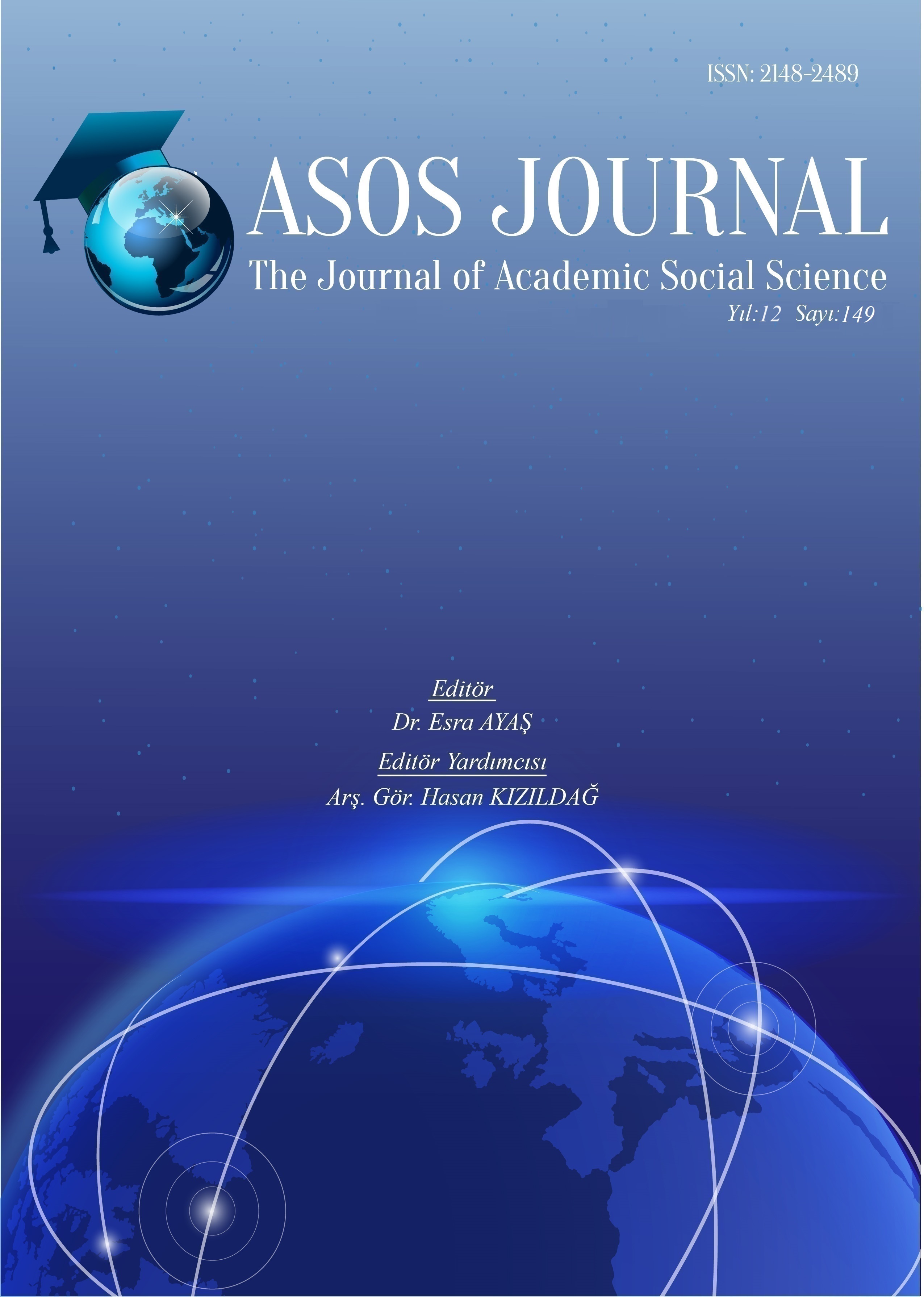Author :
Abstract
Bu araştırmada, okul öncesi eğitimi almaya devam eden çocukların motivasyon düzeylerinin sınıf içindeki sorumluluklarını yerine getirmeyi ne şekilde etkilediği konusunda; okul öncesi öğretmenlerinin görüşü alınarak mevcut tablonun belirlenip, sorunların tespit edilmesi ve çözüm önerilerinin sunulması amaçlanmıştır. Bu araştırma genel tarama modelinde yürütülen nicel boyutu olan tikel kesitsel araştırma özelliği taşımaktadır. İstanbul Kağıthane İlçe Milli Eğitim Müdürlüğüne bağlı okul öncesi eğitim kurumlarında eğitimine devam eden çocuklar araştırmanın evrenini; evrenden basit tesadüfi örnekleme yoluyla seçilen 368 çocuk örneklemini oluşturmaktadır. Araştırmanın amacına yönelik olarak veri toplamak için iki farklı ölçek kullanılmıştır. Bunlar; Okul Öncesi Çocuklar İçin Motivasyon Ölçeği ve Sorumluluk Düzeyleri Ölçeği olarak belirlenmiştir. Bu ölçeklerin ikisi de nicel verilerin toparlanıp değerlendirilmesi amacı ile kullanılmıştır. Ölçeklerin değişkenlere ilişkin basıklık çarpıklık değerine bakılmıştır. Basıklık ve çarpıklık katsayılar normal dağılım gösterdiği için varyans ve korelasyon analizlerinde parametrik testlerin kullanılmasına karar verilmiştir. Öğretmenler tarafından çocuklar için doldurulan anket verilerinin bulgularından yola çıkarak öğretmenlerin çocuklar için algıladıkları sorumluluk düzeylerinin yüksek olduğu sonucuna ulaşılmıştır. Çocukların bilişsel sebat düzeyi, yetişkinle sosyal sebat düzeyi, çocukla sosyal sebat düzeyi, üst düzey memnuniyet düzeyi, olumsuz duygular düzeyi, genel yeterlilik düzeyi arttıkça sorumluluk alma düzeyinin de arttığı sonucuna varılmıştır. Sınıf içinde sorumluluk alma düzeylerini pekiştirecek etkinliklerin yapılması, çocukların sınıf içi etkinliklere katılımının teşvik edilmesi, sınıfta her çocuğa farklı sorumluluklar verilmesi gibi uygulamalar yapılabilir.
Keywords
Abstract
This research aims at determining the current status and problems and presenting solution suggestions regarding how the preschoolers’ motivation level affects the fulfillment of their responsibilities within the class by taking the opinion of preschool teachers. This research has the quality of particular cross-sectional research having a quantitative dimension carried out under a general survey model. The children attending preschool educational institutions affiliated with the District Directorate of National Education of Kağıthane, Istanbul, constituted the universe of the research, and 368 children, selected from the universe by simple random sampling, constituted its sample. Two different scales were used in order to collect data for the purpose of the research. These were determined as the Motivation Scale for Preschoolers and the Level of Responsibility Scale. Both of these scales were used with the purpose of collecting and evaluating quantitative data. The scales’ kurtosis and skewness values regarding the variables were considered. As the kurtosis and skewness coefficients showed a normal distribution, it was decided to use parametric tests in the variance and correlation analyses. Based on the findings from the data of the questionnaire completed by the teachers regarding the children, it was concluded that the teachers’ perception regarding the children’s level of responsibility was high. It was concluded that as the children’s level of cognitive perseverance, level of social perseverance with the adult, level of social perseverance with the child, level of high satisfaction, level of negative emotions, and level of general adequacy increase, their level of assuming responsibility also increases. Practices such as the performance of in-class activities that will reinforce their level of assuming responsibility, the encouragement of the children for their participation in in-class activities, and the allocation of different responsibilities in the class to each child may be performed.





